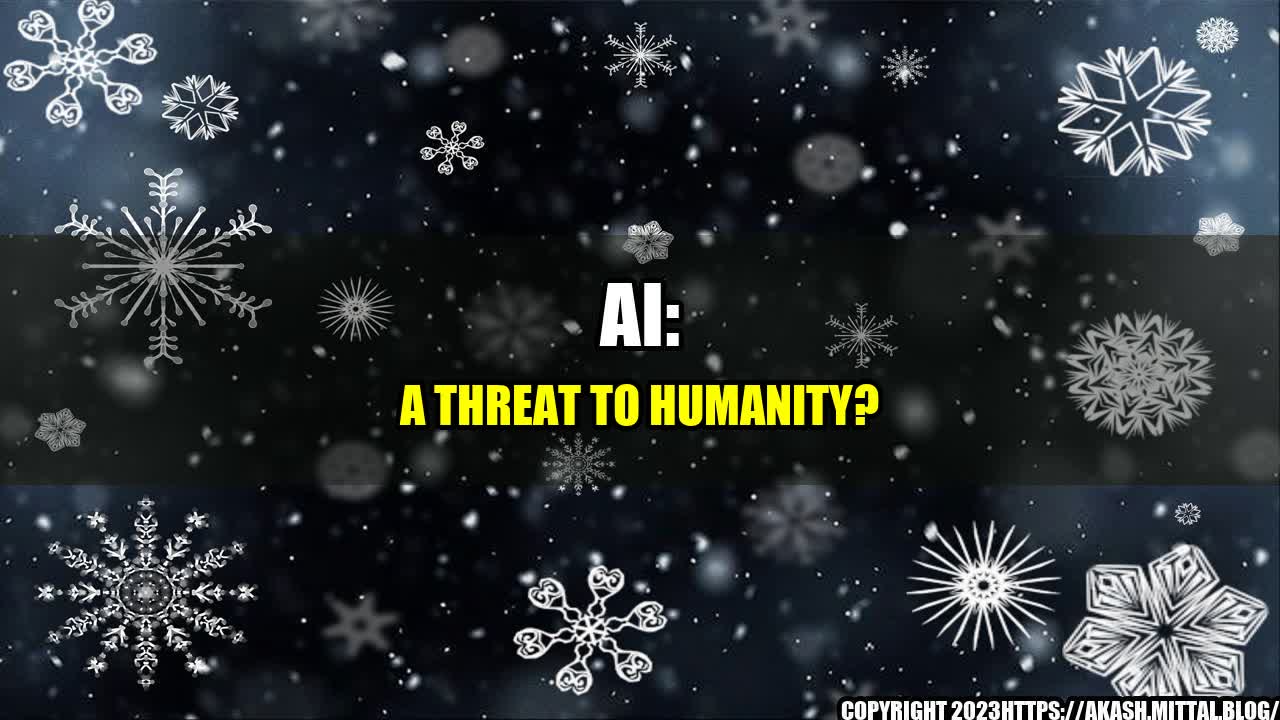It was a sunny day in Silicon Valley and John was on his way to work. He was feeling excited about his new job as a software engineer at a tech company that specialized in artificial intelligence. As he got closer to the office, he noticed a group of protesters gathered outside, holding up signs that read "Stop the Robots" and "AI is a Threat to Humanity". John was taken aback. He had never thought about AI in that way before.
Most Americans Consider AI a Threat to Humanity
According to a new poll conducted by the Pew Research Center, John is not alone in his thinking. The poll found that 72% of Americans consider artificial intelligence to be a threat to humanity. This is a significant increase from a similar poll conducted in 2017, which found that only 58% of Americans held this viewpoint.
What is driving this fear? Some experts say that Hollywood movies and science fiction novels have played a role in shaping public perception of AI. Movies like "The Terminator" and "I, Robot" have portrayed AI as a force that threatens to take over humanity. While these movies may be entertaining, they are not always accurate depictions of what AI is and what it can do.
Examples of AI's Impact on Society
While it is true that AI has the potential to be dangerous if not properly regulated, it is also important to recognize the positive impact that AI has already had on society. Here are some examples:
- Medical Diagnosis: AI has been used to help doctors make more accurate diagnoses and treatment plans for patients. This has the potential to save lives and improve patient outcomes.
- Financial Fraud: AI has been used to detect and prevent financial fraud. This saves individuals and companies millions of dollars every year.
- Environmental Monitoring: AI has been used to monitor and predict changes in the environment, which can help us better understand and address issues like climate change.
- Virtual Assistants: AI-powered virtual assistants like Siri and Alexa help us with tasks like scheduling appointments and answering questions, making our lives easier and more convenient.
These examples show that AI can be a powerful tool for good. However, it is also important to put safeguards in place to ensure that AI is used ethically and responsibly.
Conclusion
In conclusion, while it is understandable that there is fear surrounding artificial intelligence and its potential impact on humanity, it is important to recognize the positive impact that AI has already had on society. To ensure that AI is used ethically and responsibly, we need to have regulations in place and ensure that AI is developed with the best interests of humanity in mind.
- We must view AI as a tool, not a replacement for human expertise and judgement.
- We must ensure that AI is developed ethically and responsibly, with human welfare as the top priority.
- We must work toward creating a global framework of regulations that govern the use of AI to ensure its continued safe and beneficial application.

Curated by Team Akash.Mittal.Blog
Share on Twitter Share on LinkedIn